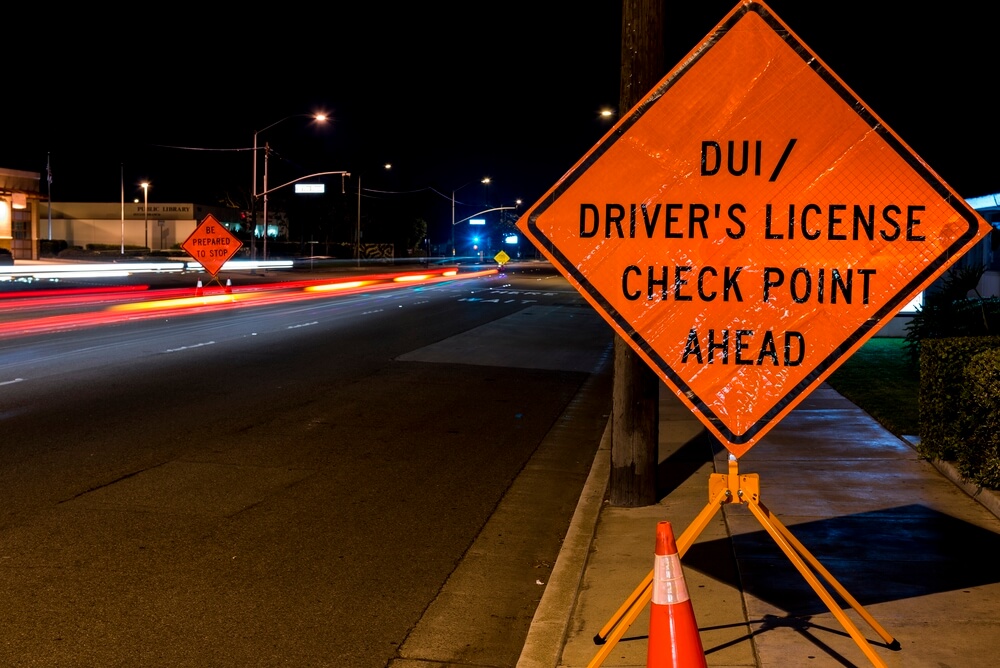
A police officer must have probable cause or a reasonable suspicion that an offense has been committed to pull over a motor vehicle, however, no such requirements pertain to California DUI checkpoints or roadblocks. DUI checkpoints are an exception to the Fourth Amendment rule and are treated as an administrative inspection much like passing through a metal detector at an airport. There must be a supervising officer present at all times to coordinate and monitor the operations and all vehicles must be treated equally when pulled over. The time and location of the checkpoint must be at a place and time when it can be reasonably expected that drunk driving is occurring such as at the end of a street lined with bars, and at around 10 pm on a Friday night. The interrogation should be kept to a minimum so as not to inconvenience the vast majority of sober drivers that are ensnared in the net. The checkpoint also must be made public as to the place and time in advance.
At a DUI checkpoint, drivers are pulled over, questioned and if suspected of DUI asked to step out of the vehicle and given a field sobriety test. You are within your rights to refuse to take these tests. When pulled over you should basically follow all of the rules that pertain to being pulled over for reasonable suspicion. The police will ask to see you driver’s license, proof of ownership, and insurance card. The officer is looking for signs of intoxication such as the smell of alcohol or marijuana on your breath or in your car, slurred speech, or bloodshot eyes. The officer is also looking for containers of alcohol, drugs and other contraband which would give him/her a valid cause to search your vehicle.
When you are pulled over at a DUI checkpoint be polite and respectful and do your best to give short, yes or no answers to his questions. It is also legal for an officer to ask you to roll your window fully down. Do not reach for your paperwork until the officer asks for it. Only then should you provide your driver’s license, registration, and insurance information. Answer all of the officer’s questions with short, polite responses.


